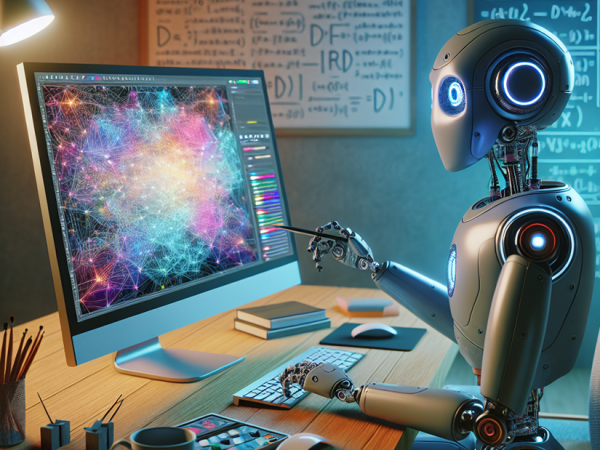
U-M became the first university anywhere to release a series of custom generative AI tools to its community last year. The AI services, developed by Information & Technology Services (ITS), have received a series of impressive enhancements for 2024, including extending the no-cost usage of their popular U-M Maizey tool for the rest of the 2023-2024 school year.
“We were inspired by how passionately our students, faculty, and staff embraced our GenAI tools last fall,” said Ravi Pendse, U-M’s vice president for information technology and chief information officer. “That is why we have continued to develop and grow the capabilities of our AI services. We want our community to have access to the best and most innovative tools available.”
The new upgrades include making the popular AI image generator DALL-E 3 and the newly updated GPT 4.0 Turbo available via UM-GPT at no cost. DALL-E 3 specializes in generating images from textual descriptions. GPT 4.0 Turbo is more capable than the previous GPT 4.0 and has an updated knowledge cutoff of April 2023. Both are now integrated into U-M GPT and are accessible by the dropdown menu on its homepage.
“We have always been very focused on providing equitable access to GenAI tools as we’ve developed these services,” said Bob Jones, executive director of emerging technology and support services. “Making DALL-E 3 and GPT 4.0 Turbo available at no cost is a huge value-add to our community.”
The university has also decided to continue offering no-cost access to its U-M Maizey service throughout May 2024. Over 750 active Maizey projects are currently being developed at U-M, including LSA’s new Maizey AI Advising tool.
Other new Maizey features include an interface refresh, the ability to export your chat conversations, and a Canvas Connector that makes linking Canvas courses with Maizey even easier.
“The fact that these tools exist and have remained available at no cost to our campus community is due to the vision and support of President Ono, Provost McCauley, and our university leadership,” said Pendse. “U-M, as an institution, recognizes that generative AI will be a major part of our collective future. That is why we continue to lead the way in using GenAI in higher education.”
